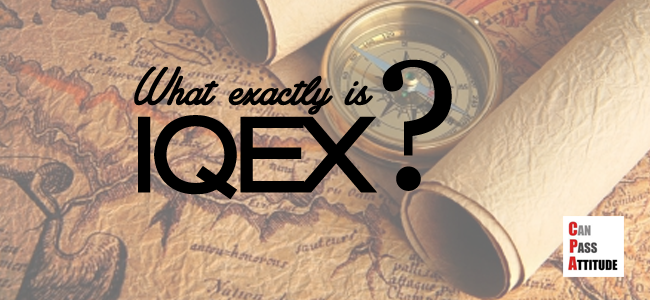![indian bcom ca for cpa exam]() Are you an Indian BCOM CPA candidate who wishes to get take the CPA exam United States? Is your BCOM and CA degree not enough to get you qualified to take the exam? Have you tried several State Boards and credential evaluators but still can’t get a favorable response?
Are you an Indian BCOM CPA candidate who wishes to get take the CPA exam United States? Is your BCOM and CA degree not enough to get you qualified to take the exam? Have you tried several State Boards and credential evaluators but still can’t get a favorable response?
Let’s discuss the challenges and possible solutions on how to get you qualify to sit for the US CPA Exam.
(If you have a MCOM or relevant master’s degree that is NOT corresponding then you are most likely eligible for the CPA exam. You can proceed to read this post on how to start the application process)
A Post Dedicated to Indian BCOM CPA Candidates
Being an Indian Chartered Accountant is a great accomplishment and I like to commend you on that, but getting pass the US-centric CPA exam requirements can be frustrating and let me help you go over the steps one by one.
Basic Requirement
All CPA candidates are expected to fulfill the “3E” requirements: Education, Exam and Experience.
Each state board has slightly different rules, but in general, the steps are:
- Obtain a “standard” bachelor degree (in the US, this means 4 years or more), together with 150 credit hour of general higher education. Students typically get 30 credit hours in each academic year. This means state boards are looking for 5 years, but some of these can be from non-degree courses from US regionally accredited universities.
- Pass the CPA exam. There are 4 parts to be completed within 18 months
- Fulfill your experience requirement and get properly verified
1A. The 4-Year Bachelor Degree Rule
Challenges
First of all, the tertiary degree system in India is different from that of the US – the bachelor program is in India 3 years while in the US it is 4 years.
Because of this, Indian CPA candidates cannot fulfill the first requirement of obtaining a 4-year bachelor degree.
In the past, there have been 3 solutions:
(a) Apply through Delaware
For the last few years Delaware is the only state that recognizes “associate degree” including 3-year non-US bachelor degree. However, Delaware is going to change its rule effective August 2012 so it will no longer work for you.
(b) Apply through Colorado or Michigan
Colorado and Michigan used to recognize CA certificate as a prerequisite to sit for the exam, and many Indian candidates applied through them. However, they have since changed the interpretation of the rules in 2009 and 2011/2 respectively and it no longer works.
(c) Apply through a few states that recognize Indian Chartered Accountancy
The CA certificate is recognized as a 4-year bachelor equivalent in the US by some states (e.g. New Hampshire, Montana, Colorado). However, since 2012 they have also changed the interpretation of their rules.
The Solution
It is a big challenge for B.COM with or without CA to pass this rule.
- If you have B.COM only and are serious about getting your CPA qualification, I suggest that you take a 2-year master’s degree (see below on restrictions). At this stage I can’t see an easy way out.
- If you have B.COM + CA, then there may still be one solution for you and we will talk about it at the end of this post.
1B. The 150 Credit Hour Rule
Challenges
Typically one year of university equals to 90 credit hours. For a 3-year B.COM degree you will get 90 credit hours.
In the past, a CA certificate gave you an additional of around 40 credit hours. With 90+40=130 credit hours you can get qualified for a few states. However, since 2012 chartered accountancy has been considered a “experience qualification” rather than an “academic qualification” and most state boards* no longer grant credits towards the educational requirements.
*As far as I know, Alaska, Guam, Colorado, Maine and Ohio still accept partial or full ICAI credits. Please double check with the state board before applying.
The Solution
Fortunately there are solutions to this rule. Typically if you pass the above rule concerning the 4-year bachelor degree with an additional masters’ degree, you won’t have this issue.
If you are short of certain accounting or federal taxation courses, you can always take them at the “accredited educational institutions”, which includes community colleges in the US or online courses.
I haven’t personally vetted the following courses but they are recommended by my readers:
* I have gathered enough readers’ feedbacks that the UNA course is good and should work in terms of fulfilling the necessary requirements.
Some institutions outside of the US can be qualified too but you have to check carefully.
There will be extra time, money and effort involved but it is doable.
1C. Applying For The CPA Exam
Challenges
If you are fine with 1A and 1B above, you should be able to find a state that you can qualify. There is extensive information on CPA exam requirements by state here.
Once a State Board is chosen, the next step is to send your Indian transcripts and marksheets to the foreign credential evaluation agency.
Whether the evaluation is required depends on where you get the education, and not your nationality. For example, if you are an Indian international student graduated from a US university, no evaluation is needed. On the other hand, if you are a US citizen studying abroad for a year, then you need to submit an evaluation report for that year.
The evaluators will normally send the report directly to state board (please double check with them). For the portion of education you may have obtained in the US, please arrange the transcript to be sent directly from your school to the state board.
Tips: make sure your name is consistent in different reports. I believe they file the application documents by name.
Common Questions
1. Which evaluator should I use?
The State Board of your chosen state should indicate which evaluators you can pick from. Some allow you to choose anyone that is a member of the evaluators’ association (i.e. NACES), while others only recognizes one, e.g. FACS for Delaware.
While some evaluators do seem to be slightly lenient in terms of giving you more credit hours, I don’t have a personal recommendation. Depending on your needs you can either pick the cheapest or the fastest.
I went through FACS myself. They are cheaper and reliable but they take the longest time spanning from 4-8 weeks.
You can get more information on these evaluation agencies here.
2. How many credit hours do you think I can get?
Even the professional evaluators need time to review your school and specific subjects before making a decision. It is therefore understandable that I can’t give you a quick answer. I don’t have the expertise to evaluate transcripts so even if you send me one I won’t be able to help. Sorry about that.
Solution
You will have to make some commitment i.e. to pay the evaluators for a professional evaluation. It costs anywhere from ~ $100-300. Express service is available but will incur extra cost.
Some states offer pre-evaluation service which will show you which courses you lack. I think it is a good idea if you aren’t sure whether you can get qualified for that state.
2. Taking The CPA Exam
(a) Getting the NTS
Once your application is approved, the state board will email/send out a Notice To Schedule (NTS) that allows you to schedule your exam at a chosen prometric center.
(b) Selecting a Testing Center
You can register in one state and physically take the exam in another. For example, the North Dakorta requirements is favorable for you and you register there, but you want to stay at relative’s house in San Francisco. You can certainly take the exam in California.
Since September 2014, Indian citizens and permanent residents can sit for the exam in the Middle East. Please be aware of the certain restriction of taking exams outside of US jurisdiction. Here is the one for Middle East region.
(c) Preparing for the Exam
This is in fact an “easier” step for most international candidates, because, things are finally somewhat under your control ![:)]()
I have a page on the top 10 CPA review courses for your reference.
After passing all parts of the exam, most (but not all) states require an ethics exam which is in open-book and self-study format.
3. Experience Requirement
This is an important consideration for picking the right state BEFORE you apply for the exam.
Challenges
This is often another bottle neck for Indian and other international candidates. Most state boards only recognize “relevant” experience that is “properly verified”.
(a) Relevance
Most states are fine with general accounting experience, but a few states only recognize public accounting i.e. auditing or related work in a CPA firm. This means that corporate, non-profit organization and non-US government agencies your experience cannot be counted, or are discounted.
(b) Proper verification
For most states, experience must be verified by an actively licensed US CPA during the time you work(ed) for him/her. Most states require that this person to be your direct supervisor. Some states allow “CPA equivalent”, which usually means a Canadian CA or Australian CA, but for the exact definition you will have to check with your State Board.
For work experience in India, unless you worked under a US CPA, your experience may not be counted. I know it is frustrating but we have to play by the rules.
Read this post to find out which states have flexible experience requirements
Questions
1. I have a H4 visa and I can’t work.
Yes, this could be an issue, but there are a few states that allow your supervisor to be a non-CPA. There are also states that recognize volunteer work.
The following link has lots of ideas, but focus on those that don’t require social security number.
Read this post to find out which states have flexible experience requirements
2. I live in India and I can’t find a CPA to work for.
This is also tough, but you may call up the Society of CPA of your registered state or explore the possibility of working in your local Big 4 which should have some US CPAs working in the firms.
Alternatively, go for CPA certificate / inactive license / non-reporting license, or pick a state that requires verification vs supervision of experience.
Washington state, Montana or Indiana where you are allowed to have a US CPA verify your experience without actually working under him/her. If you have social security number, Virginia and North Dakota have relatively flexible experience requirements as well and you can go explore.
A Note On CPA Exam International Sites
Question: I work in UAE and am considered a long-term resident. Should I take the CPA exam there?
At least in terms of the residency requirements you are qualified as a long-term resident to take the CPA exam in UAE. Please beware of the following:
Not all states allow candidates to take the exam in international sites. California is one example. You can go to this page for the list.
There is a stricter requirement to fulfill the working experience requirement: you have to get the working experience fulfilled within 3 years or they will void your CPA exam results, if you take the exam outside of US jurisdiction. However, if you take it within the US, many states have no restrictions while some give you 10 years.
To learn more about taking the CPA exam outside the US please click here.
This Is All Too Confusing. Can I Get Help?
The State Boards are actively closing what they see as “loopholes” which makes getting qualified exceedingly difficult for Indian candidates.
I personally have run out of ideas for B.COM + CA holders, but my friend Leslie-Ann at CPAexcel said she still has one “combination” (a specific state + a specific evaluator) that works.
It is understandable that she provides service only to CPAexcel students and you may find out the exact state that works after you purchase the CPAexcel course. Rest assured that they have a good product with a 87% passing rate among their students. There is a 95% refund if Leslie-Anne can’t get you qualified at the end.
- Check out Leslie-Anne’s page here
- Or read about my evaluation on CPAexcel here
Do You Still Have A Question On Your Unique Situation?
Read How Indian BCOM CPA Candidate or Chartered Accountant Gets Qualified for the US CPA Exam on I Pass the CPA Exam!!
 CPA Reciprocity is complicated in a way that each state has different rules, and the rules keep changing. Before we get into the details, let’s take a look at the history and the recent development to streamline the CPA reciprocity rules:
CPA Reciprocity is complicated in a way that each state has different rules, and the rules keep changing. Before we get into the details, let’s take a look at the history and the recent development to streamline the CPA reciprocity rules: Is it possible to become a CPA for H4 visa holders?
Is it possible to become a CPA for H4 visa holders?  Update: A newer post on
Update: A newer post on  IQEX Exam, which stands for stands for the International Qualification Examination, is a professional exam designed for CAs and CPAs in reciprocating countries with the United States.
IQEX Exam, which stands for stands for the International Qualification Examination, is a professional exam designed for CAs and CPAs in reciprocating countries with the United States. How to become a CPA for international candidates and students?
How to become a CPA for international candidates and students?  People often talk about the “150-hour rule” when it comes to the US CPA exam qualification.
People often talk about the “150-hour rule” when it comes to the US CPA exam qualification. Good news to CPA candidates in the Middle East – you can soon take the exam in your region instead of taking all the trouble to fly to the US and take the exam within the US jurisdiction.
Good news to CPA candidates in the Middle East – you can soon take the exam in your region instead of taking all the trouble to fly to the US and take the exam within the US jurisdiction. International candidates could be asked to take a US Federal Taxation course for CPA if they apply for the exam in certain states such as Delaware.
International candidates could be asked to take a US Federal Taxation course for CPA if they apply for the exam in certain states such as Delaware. International CPA candidates, including US citizens who resides in foreign countries, have longed for an opportunity to take the CPA exam closer to home.
International CPA candidates, including US citizens who resides in foreign countries, have longed for an opportunity to take the CPA exam closer to home. Good news! The AICPA/NASBA has finally answered the call from international candidates with the opening of 6 international sites since August 2011.
Good news! The AICPA/NASBA has finally answered the call from international candidates with the opening of 6 international sites since August 2011. IQEX Exam, which stands for stands for the International Qualification Examination, is a professional exam designed for CAs and CPAs in reciprocating countries with the United States.
IQEX Exam, which stands for stands for the International Qualification Examination, is a professional exam designed for CAs and CPAs in reciprocating countries with the United States.
 Are you an Indian BCOM CPA candidate who wishes to get take the CPA exam United States? Is your BCOM and CA degree not enough to get you qualified to take the exam? Have you tried several State Boards and credential evaluators but still can’t get a favorable response?
Are you an Indian BCOM CPA candidate who wishes to get take the CPA exam United States? Is your BCOM and CA degree not enough to get you qualified to take the exam? Have you tried several State Boards and credential evaluators but still can’t get a favorable response?
